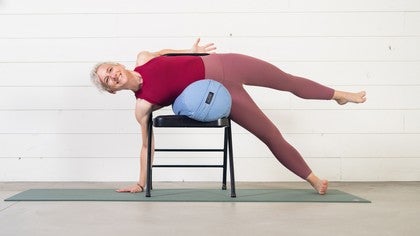
Morning Rituals To Greet the Day with Calm
As we emerge from sleep, there is a watery quality to our minds that we can float in peacefully for a time, rather than rushing headlong into our phones, push notifications, emails, and to-do lists. Beginning the day with a ritual designed to prolong that kind of calm can help keep the rest of your day more mellow.
“The main difference between a routine and a ritual is the intent you put behind each,” says Dr. Christiane Northrup, MD, author of Women’s Bodies, Women’s Wisdom. “Rituals are meaningful because you are putting mindfulness into practice. You are engaged in the process of performing a ritual in a way you may not be engaged in performing a routine task.”
Here are some ideas to maximize the mindfulness of the morning.
Meditate
The enduring beauty of meditation is that it is available to all people, everywhere, at any time. It requires no special gear, no secret password, no entry fee, and really, no instruction. (Though if you do want a guide, we’ve got you covered.) You can begin right now.
The effects of slowing down can be surprisingly fast-acting:
“The best way I can describe the effect [of daily morning meditation],” writes technology journalist and New York Times columnist, Farhad Manjoo, “is to liken it to a software upgrade for my brain — an update designed to guard against the terrible way the online world takes over your time and your mind.”
If it turns out meditating isn't for you, try looking more closely at your dream world.
Dream work
Carl Jung called dreams “the small hidden door in the deepest and most intimate sanctum of the soul.” According to Jung, working with the visual and symbolic content of our dreams grants us access to that inner sanctum of our psyche, and this information can be helpful in our waking life.
Upon waking, write down your dreams in a dream journal. Over time, you may begin to see patterns and themes develop.
Jung also developed the idea of "active imagination", which is the process of allowing your conscious mind to continue the dream and see what happens. Here’s how it works:
“Sit in a quiet place and recall a figure that has appeared to you in a dream,” writes Dale M. Kushner on Psychology Today. “Talk to it. What is your second-grade teacher doing in a dream? Why is she grooming a parrot? Why is this happening in your grandmother’s yard? To find out the meaning of the dream, active imagination encourages the dreamer to dialogue with dream figures in waking life. We ask and, through their answers, we associate what these figures might mean to us.”
If you get really into the dream interpretation, check out the podcast This Jungian Life. At the end of each episode, the three hosts, all Jungian analysts, interpret a reader-submitted dream. Maybe submit one yourself!
Journaling
Whether you call it "journaling" or just "writing in your notebook", taking the time to notice and notate what's on your mind when you wake up is a great way to clear the air before starting your day. According to the University of Rochester Medical Center, journaling can help prioritize and resolve problems, vent feelings, and reduce stress. Journaling is effective for individuals coping with PTSD, depression, and anxiety. Journaling is also a great way to create a regular gratitude practice, thereby increasing self-esteem, promoting better sleep, and improving overall mood.
Journaling can be a simple as grabbing a notebook and pen, or as elaborate as picking out a personalized journal and a quill pen - whatever fits your personality. Maybe you need some guidance, and a journal with prompts would help you start. If you no longer get "A"'s for penmanship, you can open up Notepad on your computer. For those who want to journal on-the-go, try one of these journaling apps.
Read a poem
Poems are short bursts of insight, beauty, and possibility. First thing in the morning, our minds might be more receptive to poetry’s abstract and unpredictable language. This practice doesn’t just allow you to begin the day with art, it brings art into your day.
“I was able to bring myself with imagination to questions and look at language that was being used for HR, governance, fundraising, and communication,” says Pádraig Ó Tuama, an Irish theologian, poet, and host of the podcast Poetry Unbound. “For me, poetry is really practical in the sense that it grounds you in what’s possible with language.”
We know those who regularly read poetry demonstrate a boost in linguistic fluency, better memory, better critical thinking, and an increase in empathy. But we’re sold on the anecdotal evidence and personal experience of what a life—and specifically a day—with poetry provides.
“That's the practical greatness of a poem,” writes author and teacher Alan Heathcock. “They don't take much time, travel well, don't require any plug-ins or accessories. It's the ancient and perfect technology of words on a page that make you imagine beyond your means, make you feel the truths of lives that are not yours, and contemplate the life you have.”
That’s worth waking up for.
Don’t know where to start? How about Ada Limón, Mahogany L. Browne, or Marge Piercy? Or sign up to receive a poem-a-day delivered to your inbox.
Keep it simple
A calming, grounding ritual doesn’t have to be complicated. You don’t need to grab your phone or set a timer. What if you simply open your eyes and soak in the silence for a minute or two? If you took the time—seconds!—to think of three things you’re grateful for? Or if you set an intentional word for your day? Love, compassion, patience—whatever you want to bring from your bed into your commute and on to the staff meeting.
What to remember is that rituals aren’t a practice in perfection. The practice of ritual is in cultivating meaning in daily life. Forget to count your blessings one morning? Don’t sweat it. There’s always another chance at bedtime, and again tomorrow.
Comments
You need to be a subscriber to post a comment.
Please Log In or Create an Account to start your free trial.













